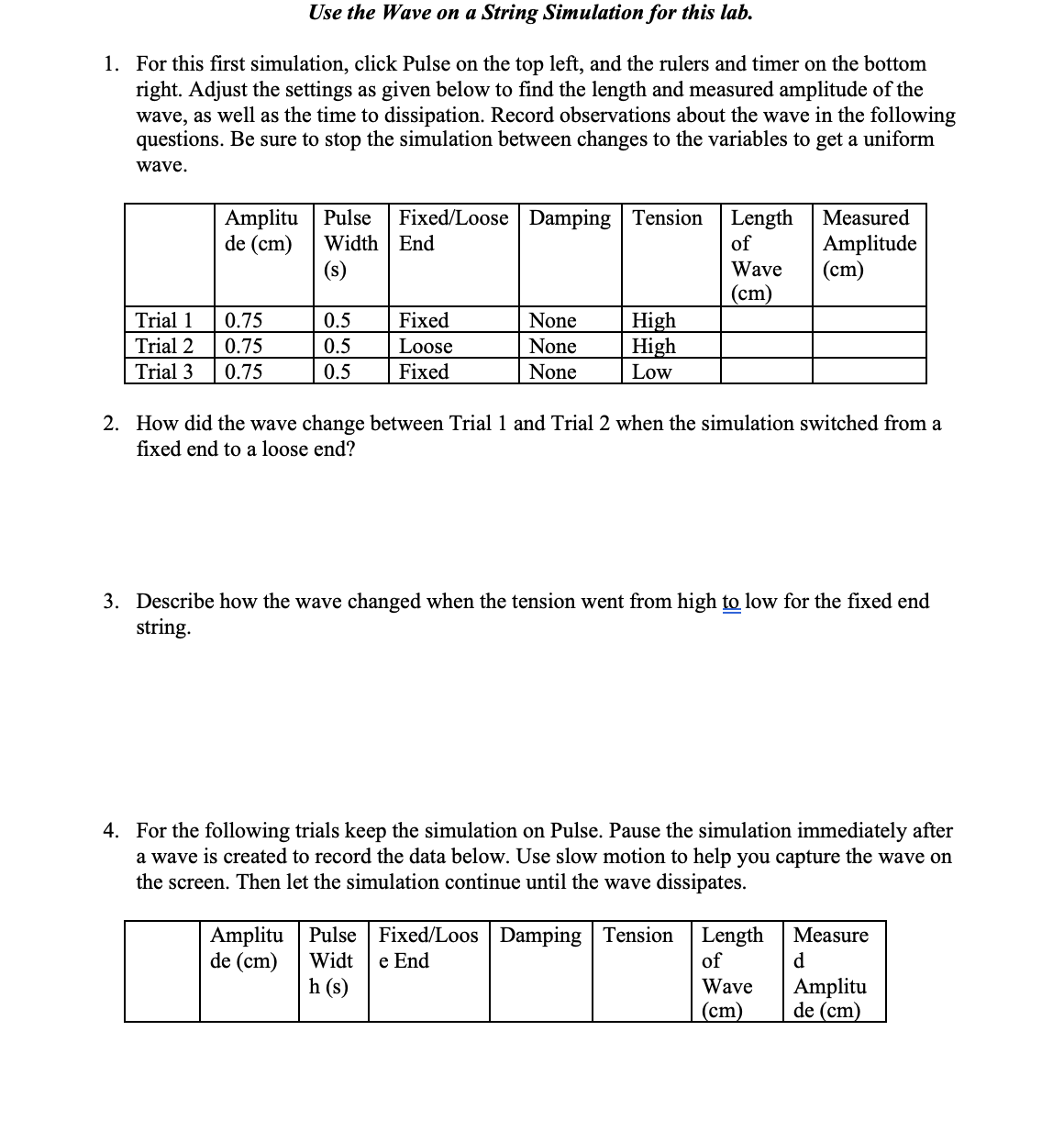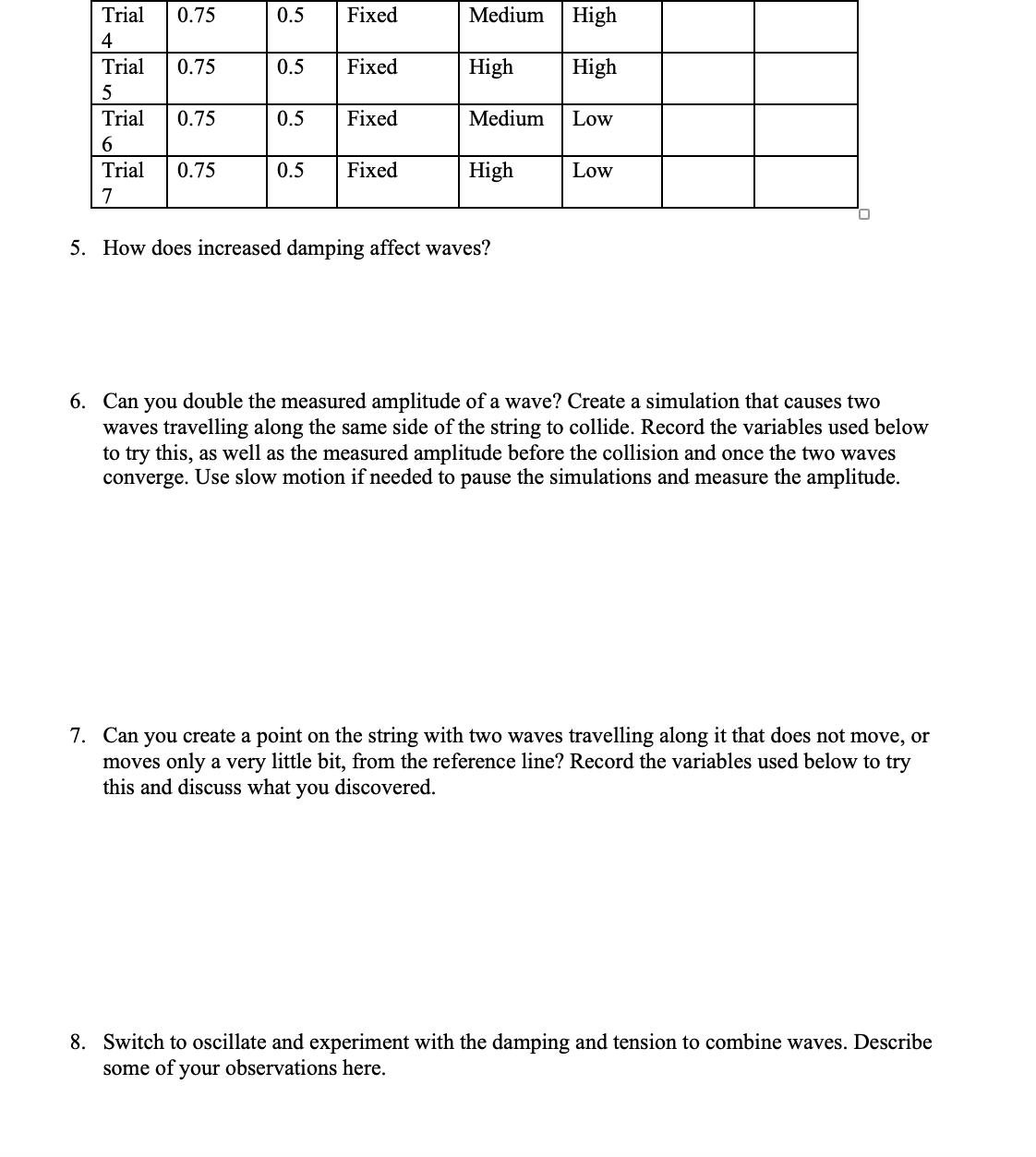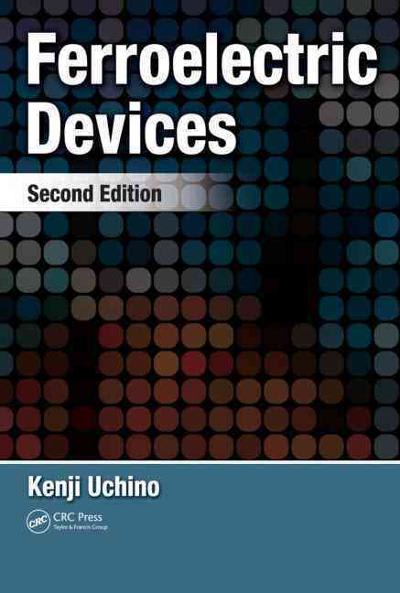Answered step by step
Verified Expert Solution
Question
1 Approved Answer
please help solve questions 1, 2, 3, 4, 5, 6, 7, and 8 using simulation https://phet.colorado.edu/sims/html/wave-on-a-string/latest/wave-on-a-string_en.html Use the Wave on a String Simulation for this
please help solve questions 1, 2, 3, 4, 5, 6, 7, and 8 using simulation
https://phet.colorado.edu/sims/html/wave-on-a-string/latest/wave-on-a-string_en.html


Step by Step Solution
There are 3 Steps involved in it
Step: 1

Get Instant Access to Expert-Tailored Solutions
See step-by-step solutions with expert insights and AI powered tools for academic success
Step: 2

Step: 3

Ace Your Homework with AI
Get the answers you need in no time with our AI-driven, step-by-step assistance
Get Started


